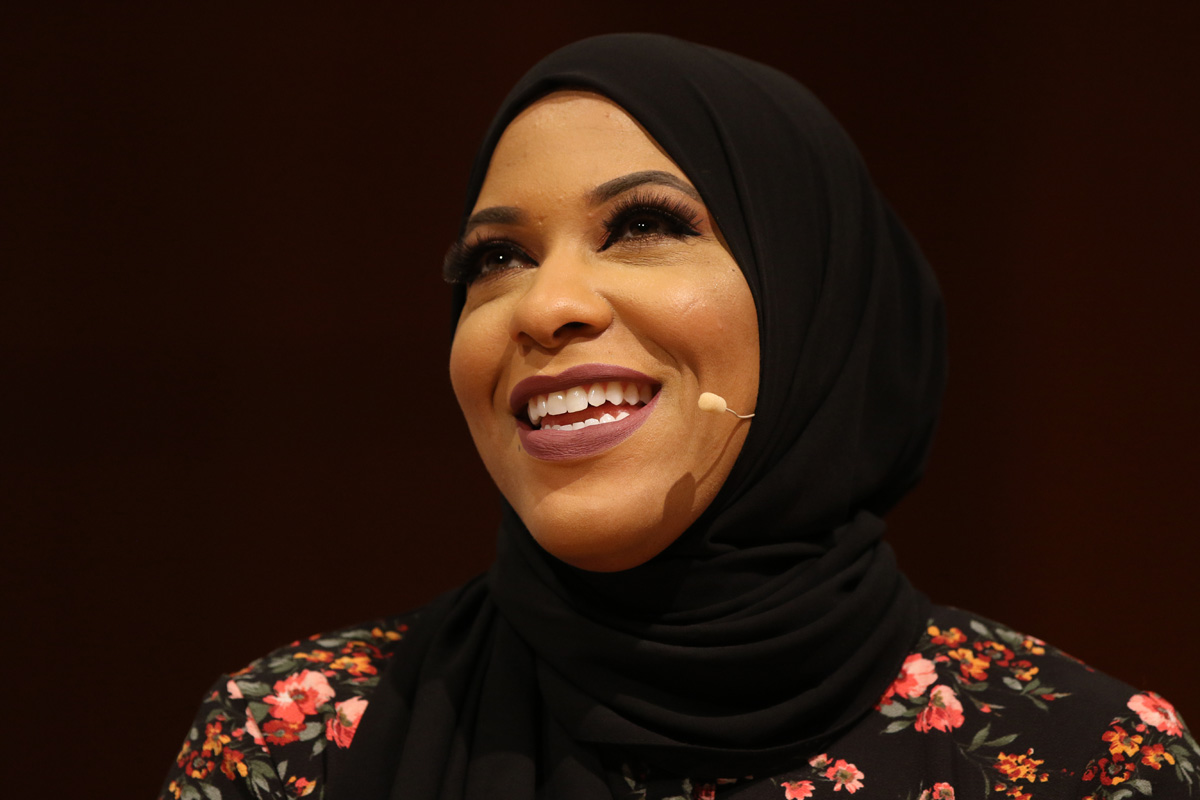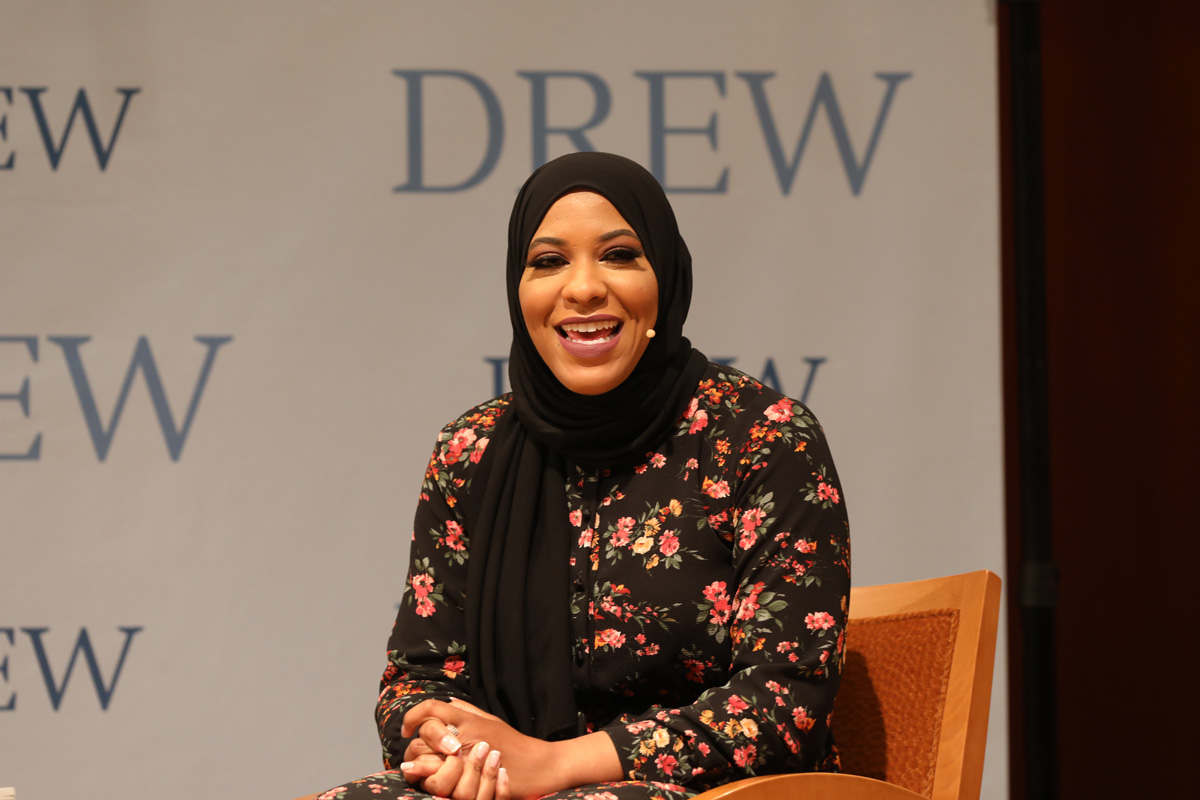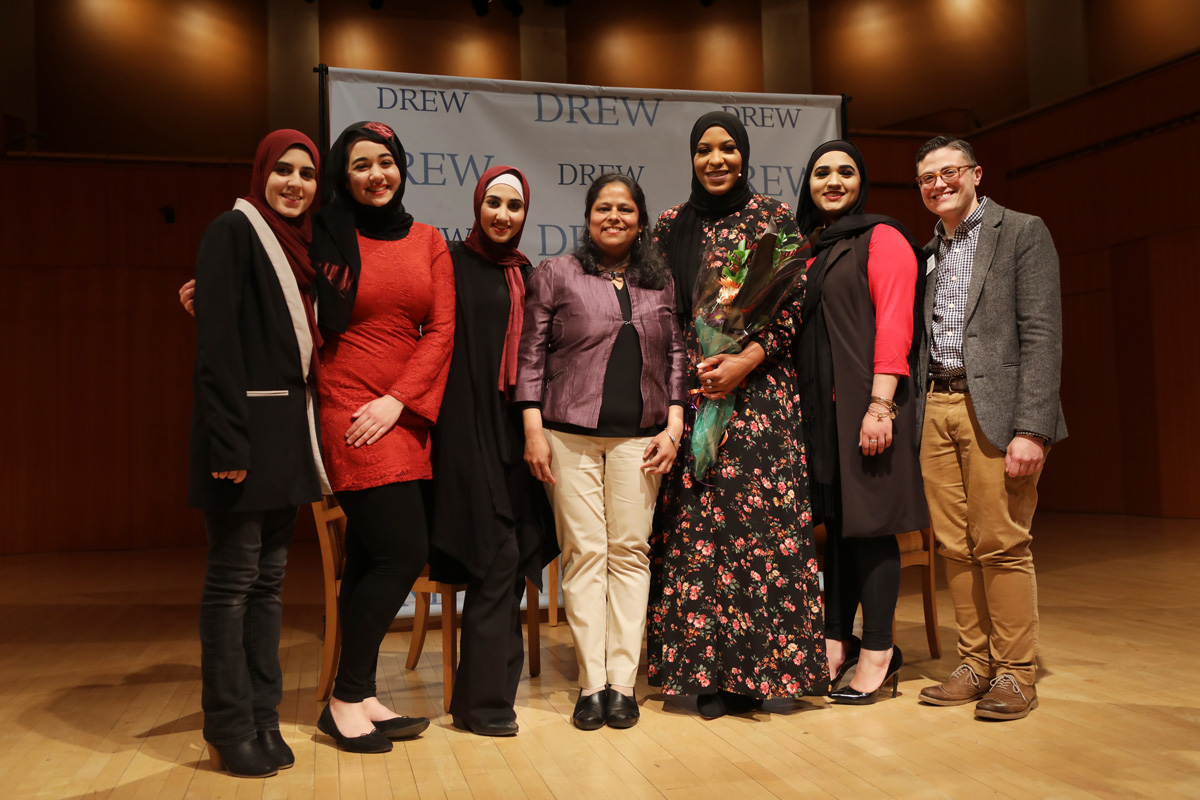Ibtihaj Muhammad on fencing, discrimination, creating a Barbie with a hijab.
Enlarge

May 2018 – The world sees fencer Ibtihaj Muhammad as a trailblazing athlete, as she was the first American Olympian to compete while wearing a hijab.
Muhammad, however, is so much more than a fencer, as became apparent during an engaging appearance at Drew University. She talked about designing clothing for Muslim women, helping to create the first Barbie with a hijab, starting a nonprofit and calling out the discrimination she faces—as both a Muslim and black woman. She’s also about to publish a memoir titled, Proud: My Fight for an Unlikely American Dream.
That said, she does credit fencing with building her confidence, helping her get into a top college and providing a platform to advocate for change. To her, athletes “sit at a seat of privilege” that they should use to better the world around them.
Enlarge

At Drew, Muhammad, as a guest of the Muslim Students Association, readily answered more than a dozen personal and professional questions from Associate Professor Jinee Lokaneeta and students in the audience. Here are the top six.
Why fencing?
“It allowed me to pursue my desire to be active in sport and also adhere to the tenants of my faith. So, it was really the first time as a kid that I kind of felt that I fit in with my teammates. And I would say having that experience from the age of 13 years old—it just shaped the way I was able to grow up.”
Why are you so outspoken about discrimination?
“As a public figure, I feel like it’s my responsibility to speak on these things because I don’t want people to think—or society to think—that these are isolated incidents. If they can happen to me, for sure they can happen to other people.”
How do you keep from getting fatigued by this?
“I don’t think that it should be the burden of a minority to constantly have to explain themselves and stand up all the time for their views. That can be very exhausting. And I always say that it’s not only as important for you as a black woman [to speak out] as it is for your friends—who may not be men or women of color—to acknowledge even their own privilege.”
Enlarge

Why create a Barbie?
“I played with Barbie dolls for a relatively uncomfortably long time—no exaggeration, until I was like 15 years old. … My mom only bought us black and brown Barbies. I think this was my mom’s effort to have her girls see themselves being represented in something as simple as doll-play. And think of how many kids don’t see themselves when they walk down the toy aisle, which is why the movie Black Panther is so transformative. For me, with doll-play, it was a way for me to imagine myself in so many different roles.”
What do you mean by the title of your memoir?
“When people think of Americans, they don’t necessarily think of someone like me. And as an African American, as someone who was born and raised a stone’s throw away from here [in Maplewood], I want to, even in the title, change people’s ideas and misconceptions that they may have [about] Muslims.”
How do you remain hopeful?
“I think it comes from having a strong faith.”
Enlarge



